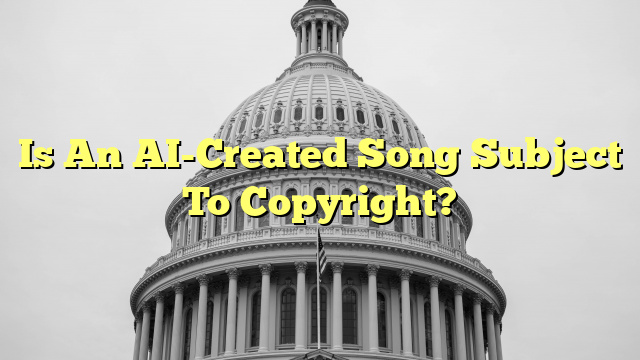Table of Contents
Introduction
With the rapid advancements in artificial intelligence (AI), the question of copyright for AI-generated content has become a topic of debate. One particular area of interest is AI-created music. As AI algorithms become more sophisticated, they are capable of composing original pieces of music that can rival those created by human composers. This raises the question: Is an AI-created song subject to copyright?
Understanding AI-Generated Music
AI-generated music refers to compositions that are entirely or partially created by artificial intelligence algorithms. These algorithms are trained on large datasets of existing music, enabling them to analyze patterns, styles, and structures. Using this knowledge, AI systems can generate new musical pieces that mimic the characteristics of specific genres or artists.
AI-generated music has gained attention for its ability to produce complex compositions quickly and efficiently. It has been used in various applications, including film scoring, video game soundtracks, and even commercial music production.
Copyright Laws and AI Creations
The question of whether AI-generated music is subject to copyright is complex and varies depending on the jurisdiction. In most countries, copyright protection is granted to original works created by human authors. Since AI algorithms are not considered legal entities, they cannot be recognized as authors under current copyright laws.
However, if a human composer collaborates with an AI system or makes significant creative contributions to the final composition, they may be eligible for copyright protection. In such cases, the human composer’s contributions are considered substantial enough to warrant copyright recognition.
Challenges and Controversies
The intersection of AI and copyright law raises several challenges and controversies. One of the main issues is determining the level of human involvement required for a work to be eligible for copyright protection. The current legal framework is often ill-equipped to handle the complexities of AI-generated content.
Another challenge is the potential for AI systems to infringe upon existing copyrighted works. Since AI algorithms are trained on existing music, there is a risk that they may produce compositions that closely resemble or even plagiarize existing songs. This raises questions about the originality and authenticity of AI-generated music.
Conclusion
The question of whether an AI-created song is subject to copyright is still a gray area in many jurisdictions. While AI algorithms themselves cannot be recognized as authors, human involvement and creative contributions can potentially make a composition eligible for copyright protection.
As AI technology continues to advance, it is crucial for lawmakers and legal experts to address the challenges and controversies surrounding AI-generated content. Clear guidelines and regulations are needed to ensure fair protection for both human creators and AI systems.
Is AI-generated music copyrighted?
AI-generated music itself cannot be copyrighted since AI algorithms are not recognized as legal entities. However, if a human composer collaborates with an AI system or makes significant creative contributions, they may be eligible for copyright protection.
Can AI creations be copyrighted?
AI creations, including music, can potentially be eligible for copyright protection if there is sufficient human involvement and creative contributions. The level of human input required for copyright recognition may vary depending on the jurisdiction.
Does AI content have copyright?
AI content, including music, does not have copyright on its own. Copyright protection is granted to original works created by human authors. However, if a human collaborates with an AI system or contributes significantly to the final composition, they may be eligible for copyright protection.

